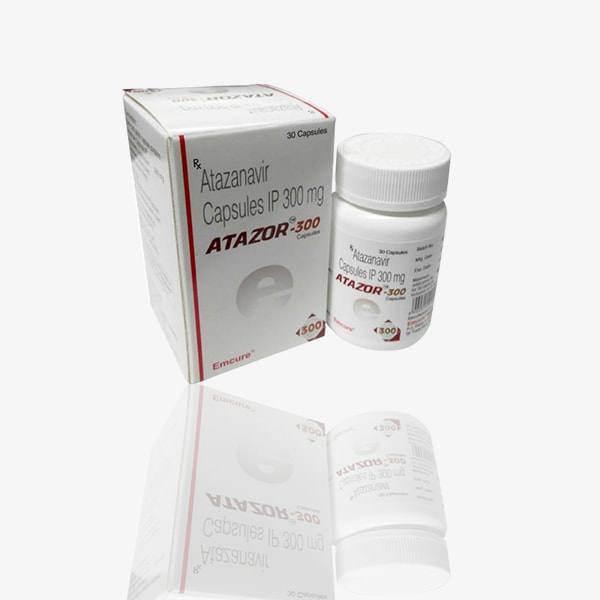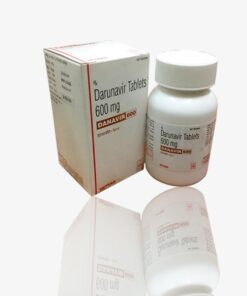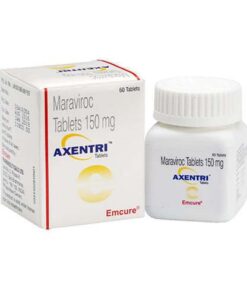Buy Atazor : Atazanavir 300 mg Capsules Online
$139.35
Brand Name : Atazor
Composition : Atazanavir
Manufactured by : Emcure Pharmaceuticals Ltd.
Strength : 300 mg
Form : Capsules
Packing : Pack of 30 Capsules
Prescription Required *
Atazor is a medication used for the treatment of HIV infection in adults. Atazor contains the active ingredient Atazanavir, which is classified as a protease inhibitor. Protease inhibitors prevent the virus from multiplying in the body.
Composition:
Each capsule of Atazor contains 300 mg of Atazanavir. Along with the active ingredient, the capsule also contains other inactive ingredients like microcrystalline cellulose, lactose monohydrate, crospovidone, povidone, and magnesium stearate.
Uses:
Atazor is primarily used in the treatment of HIV infection in adults. It is used in combination with other antiretroviral drugs. It helps to decrease the virus load in the body and increases the number of CD4 cells, which are essential for fighting the infection.
Usage and Dosage:
This medication is usually taken once a day with food. The recommended dose of Atazor is one capsule (300 mg) per day, which should be taken at the same time every day. The dosage may vary depending on the patient’s condition and response to the medication. It is advisable to follow the instructions prescribed by the doctor.
Storage Conditions:
Atazor should be stored at room temperature, away from heat and moisture. Keep the medication away from children and pets.
Mechanism of action:
Atazor works by inhibiting the protease enzyme, which is essential for the multiplication of HIV virus. Protease inhibitors prevent the immature virus from becoming mature by preventing the cleavage of viral proteins, which are required for the virus to function.
Contraindications:
Atazor is not recommended for use in patients who are allergic to Atazanavir or any other ingredient of the medication. It is also contraindicated in patients who have liver or pancreatic problems or have a history of kidney stones. Pregnant and lactating women should consult their doctor before taking the medication.
Interactions:
Atazor may interact with other medications like anticoagulants, antifungal drugs, statins, calcium channel blockers, and drugs used for tuberculosis. It is important to inform the doctor about all the medications that the patient is taking.
Adverse Reactions:
Some of the common side effects of Atazor include nausea, diarrhea, vomiting, headache, rash, abdominal pain, and indigestion. These side effects are usually mild and go away on their own. However, in some rare cases, Atazor may cause serious side effects like liver damage, kidney stones, and electrolyte imbalances. In case of any adverse reactions, seek medical attention immediately.
Be the first to review “Buy Atazor : Atazanavir 300 mg Capsules Online” Cancel reply
Related products
HIV / AIDS













Reviews
There are no reviews yet.